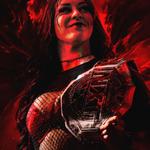JFK - Attentataufdeckung
06.09.2016 um 21:07Groucho schrieb:Offensichtich haben nicht alle davon gewusst, dass man wegen Regierunsgstabilität dieses Thema totschweigen sol
Groucho schrieb:Also entweder übertreibst du hier maßlos, oder dem Spiegel Artikel fehlen wichtige INfos
solange man die Ermittlngsbehörden hinter sich hat können andere solche Dinge noch so breit tretenGroucho schrieb:Im Gegensatz zu dem, was du insinuierst, wurde das scheinbar genüsslich öffentlich breit getreten.
Dem Spiegel fehlten wichtige Infos. Schade, dass du den Plattenspieler-Gag nicht verstanden hast:
Don B. Reynolds also told of seeing a suitcase full of money which Baker described as a "$100,000 payoff to Johnson for his role in securing the Fort Worth TFX contract". His testimony came to an end when news arrived that President John F. Kennedy had been assassinated.Toll wie du das ganze auf den Plattenspieler reduzierst
As soon as Lyndon B. Johnson became president he contacted B. Everett Jordan to see if there was any chance of stopping this information being published. Jordan replied that he would do what he could but warned Johnson that some members of the committee wanted Reynold's testimony to be released to the public. On 6th December, 1963, Jordan spoke to Johnson on the telephone and said he was doing what he could to suppress the story because " it might spread (to) a place where we don't want it spread."
Abe Fortas, a lawyer who represented both Lyndon B. Johnson and Bobby Baker, worked behind the scenes in an effort to keep this information from the public. Johnson also arranged for a smear campaign to be organized against Don B. Reynolds. To help him do this J. Edgar Hoover passed to Johnson the FBI file on Reynolds.
Nancy Carole Tyler moved back to Tennessee but returned in 1965 to work with Baker as his bookkeeper at the Carousel Motel. Tyler believed that Baker would leave his wife. When he refused, she became very angry and according to Baker, made scenes. This included threats to commit suicide.
On 17th January, 1964, the Senate Rules Committee voted to release to the public Reynold's secret testimony. Johnson responded by leaking information from Reynolds' FBI file to Drew Pearson and Jack Anderson.
A few weeks later the New York Times reported that Lyndon B. Johnson had used information from secret government documents to smear Don B. Reynolds. It also reported that Johnson's officials had been applying pressure on the editors of newspapers not to print information that had been disclosed by Reynolds in front of the Senate Rules Committee.
http://spartacus-educational.com/JFKbakerB.htm
Reynolds also appeared before the Committee on Rules and Administration on 1st December, 1964. Before the hearing Reynolds supplied a statement implicating Bobby Baker and Matthew H. McCloskey (Treasurer of the National Democratic Party at the time) in financial corruption. However, the Democrats had a 6-3 majority on the Committee and Reynolds was not allowed to fully express the role that Johnson had played in this deal. As Reynolds told John Williams after the assassination: "My God! There's a difference between testifying against a President of the United States and a Vice President. If I had known he was President, I might not have gone through with it."
In December, 1966, Edward Jay Epstein wrote an article for the Esquire Magazine where he claimed that Reynolds had given the Warren Commission information on the death of John F. Kennedy. Reynolds said that Bobby Baker had told him that Kennedy "would never live out his term and that he would die a violent death." Baker had also said that "the FBI knew that Johnson was behind the assassination".









